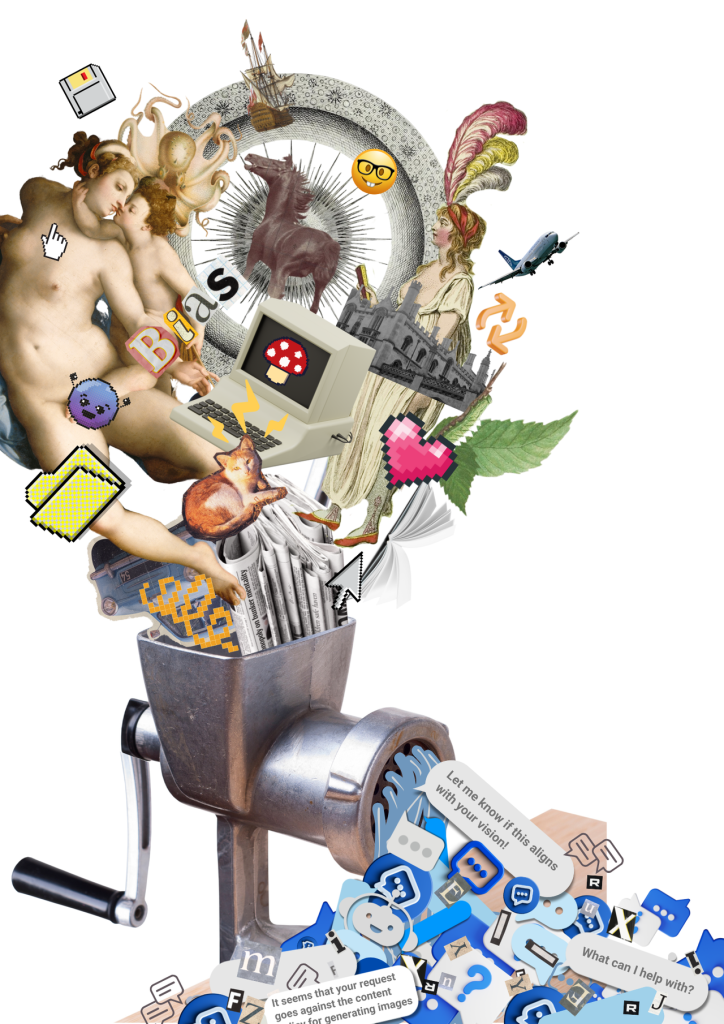
Its probably fair to say that the hype around Generative AI far outstrips the reality. Perhaps that is because in the slow process of discovering actual jobs which AI can do, copy editing and advertising is one of those at the forefront.And goven that the AI companies are very keen on hyping their products, there is an endless stream of artciples saying how wonderful AI is for almost every occupation. These articles almost always talk about how much time AI saves and how this increases productivity.
Here's an example from a company called Screenloop:
"AI is not simply a tool—it’s a disruptor. In an era where agility and efficiency are non-negotiable, the role of AI has extended beyond merely assisting recruiters— it’s reshaping the very fabric of how we think about talent acquisition. What was once seen as an administrative task is now a strategic role in defining a company’s future.
Now that AI tools can handle resume screening, scheduling, and even initial candidate engagement, recruiters find themselves in a unique position. The question now isn't just 'how much time can we save?' but rather, 'how can we strategically reinvest it? How can we maximise the impact of the time AI gives back to us?'
Speed and Precision
AI's impact on recruitment processes, particularly in screening, is undeniable. Tools that can parse thousands of resumes in seconds have revolutionised the way talent acquisition operates. But the real advantage isn't just speed—it’s precision. By filtering out irrelevant applications and flagging the most promising candidates based on predetermined criteria, AI doesn't just make processes faster, it makes them smarter.
Enhanced Candidate Experience
A significant benefit of AI in recruitment is the potential to enhance candidate experience. In fact, companies using AI in hiring have reported a 30% increase in candidate satisfaction, not because the tools replaced human interaction, but because they created space for more meaningful engagement. When AI handles repetitive tasks, recruiters can focus on optimising the candidate experience based on insights collected by tools such as Screenloop's candidate pulse solution. And this matters—experience drives employer brand perception in a competitive market."
And so on.......
But now the reality. Charlie Ball, UK Jisc's head of labour market intelligence, has published his annual forecast of what's to come in the labour market in the year ahead. And one of his predictions is about recruitment! Here is what he says:
AI may not take your jobs but it's a headache in recruitment.
As the ISE have been telling us in detail, AI is not, so far, displacing loads of jobs as might have been feared a couple of years ago, but it's still having quite an impact. AI is good at writing covering letters and CVs, and so it makes sense for candidates to use them, and so they do. That means it's a lot easier for candidates to write a lot of relatively good job applications, quickly, and so that's exactly what they do.
This means everyone is applying for all the jobs available, so even though there are actually more jobs than there used to be, they're all getting more applicants, all using the same tools, with largely identical applications and recruiters are swamped, which means they have to spend more resources to administer a recruitment round, which ultimately makes recruitment harder and more expensive. That may start to have an effect on vacancy numbers.
What recruiters want to do is encourage applicants to use AI well - after all, it's likely to be a useful business skill - and discourage it being used badly. So they don't want to stop it entirely, but do expect a lot more talk this year about how to limit it being used in applications. And a lot of talk from online hustlers claiming they have a magic solution to make your applications foolproof using AI, of course.
About the feature image
The outputs of Large Language Models do seem uncanny often leading people to compare the abilities of these systems to thinking, dreaming or hallucinating. This image is intended to be a tongue-in-cheek dig, suggesting that AI is at its core, just a simple information ‘meat grinder,’ feeding off the words, ideas and images on the internet, chopping them up and spitting them back out. The collage also makes the point that when we train these models on our biased, inequitable world the responses we get cannot possibly differ from the biased and inequitable world that made them. Attributions - Studio of: Willem van de Velde II, Michele Tosini https://nationalgalleryimages.ie/groupitem/40/ This image was created using Canva: www.canva.com
